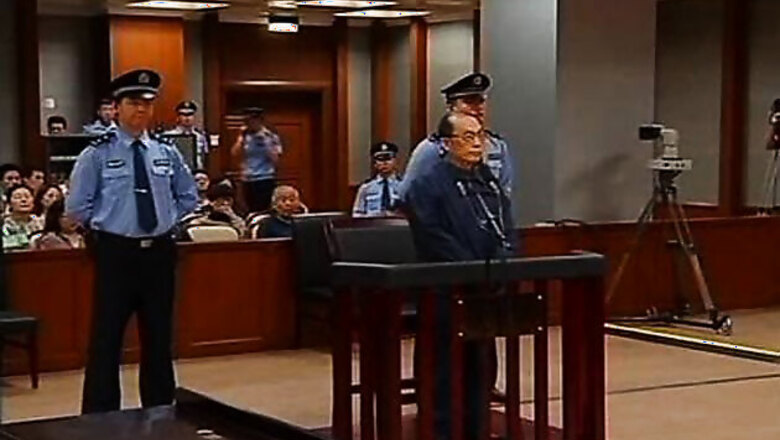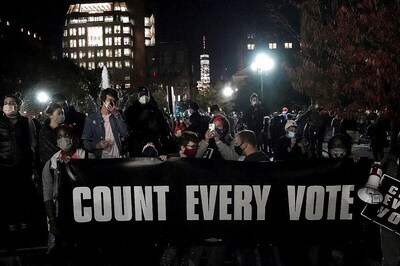
views
China gave former Railways Minister Liu Zhijun a suspended death sentence for corruption, state media said on Monday, in a case seen as a test of President Xi Jinping's resolve to crack down on pervasive graft.
Liu got the "death penalty with a two-year reprieve," for "bribery and abuse of power" from the Beijing No 2 Intermediate People's Court, China's official Xinhua news agency said, a sentence that typically amounts to life in prison.
Since becoming Communist Party boss in November, and president in March, Xi has made battling rampant corruption a key objective of his administration, warning that the problem is so severe it could threaten the party's survival.
Liu is the highest-ranking official sentenced since Xi took office, although the case predates his watch. The new President has said anti-corruption efforts should target low-ranking "flies" as well as powerful "tigers", but few high-level violators have been probed yet.
Liu was formally charged in April with abuse of power, taking bribes and malpractice, conduct that led to "huge losses" of public assets, state media said when his trial began at a Beijing courthouse under heavy security in early June.
He was sacked in February last year and later expelled from the Communist Party. Liu had successfully resisted a merger with the Ministry of Transport six years ago, but the government announced in March the two ministries would be joined.
Xinhua has said Liu took advantage of his position and helped 11 people to either get promotions or win contracts, in return accepting 64.6 million yuan in bribes between 1986 and 2011.
China's railway system has faced numerous problems in the past few years, including heavy debts from funding new high-speed lines, waste and fraud. The government has pledged to open the rail industry to private investment in a big way.
The ministry suffered a major blow to its image when 40 people were killed in a crash between two high-speed trains in 2011.
Liu's case drew a lot of attention when it first broke, but has been overshadowed by the much more sensational case of the former party chief of Chongqing, the ambitious Bo Xilai.
Bo's downfall last year, amid lurid accusations of murder and diplomatic intrigue, caused division and uncertainty as the party prepared to transfer power to a new generation of leaders.
The government has yet to announce a trial date for Bo, or the charges he will face.

















Comments
0 comment